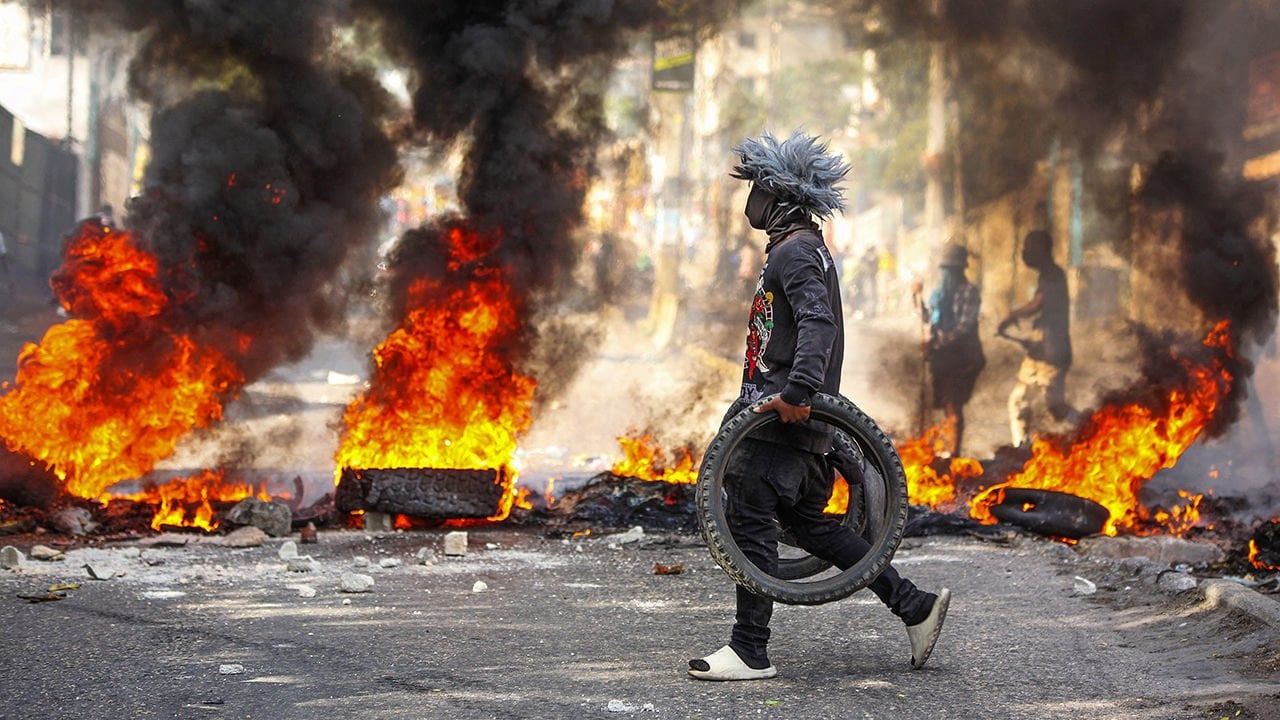
Killer gangs are inches from ruling all of Haiti
https://www.economist.com/the-americas/2025/05/07/killer-gangs-are-inches-from-ruling-all-of-haiti
Posted by debasing_the_coinage


Killer gangs are inches from ruling all of Haiti
https://www.economist.com/the-americas/2025/05/07/killer-gangs-are-inches-from-ruling-all-of-haiti
Posted by debasing_the_coinage
4 comments
Any suggested way to get around the paywall..?
Though considering Haiti’s government & police forces are essentially their own gang factions, with just a little more restraint than the “actual” gangs, it’s arguable that Haiti has already completely fallen at this point…
The support forces from Kenya (and smaller contributions from other countries) have basically had little to no impact… Even in “secure” areas, civilians are barely holding on to any semblance of a normal life.
Haiti, Sudan, Myanmar, Gaza, Xinjiang, Ukraine….. It’s hard not to get depressed at the seeming lack of care & certain lack of action taken by the governments of the world; everything has to be so politicalized & approached with a “well what do we get out of it?” mentality.
It’s sickening. I feel helpless in the face of these atrocities.
The collapse of Haiti’s government in April last year was a challenge but also an opportunity. An interim government called the Transitional Presidential Council was installed. A UN-brokered Kenyan-led security mission arrived soon after. But a year later things are worse than ever. “We are approaching a point of no return,” María Isabel Salvador, the UN’s top official in Haiti, told its Security Council at a meeting on April 21st.
Tasked with preparing for elections that in theory will be held in November, the council is now mired in allegations of corruption. The security force of around 1,000 people (less than half the number originally planned) has not been able to stem the chaos. Its funding runs out in September. The council is a “transitional authority that controls nothing,” says Claude Joseph, a former prime minister. “It’s an unsustainable catastrophe. We could lose Port-au-Prince at any time.”
Port-au-Prince, the capital, now sees daily gun battles in which police and civilian vigilantes face off against a gang coalition called Viv Ansanm (“Living Together”). It has seized control of much of the city. The international airport has been all but shut down; the only way in or out is by helicopter, or by a barge that skirts the coast to bypass gang territory to the south. On May 2nd the United States designated Viv Ansanm and a sister organisation as terrorist groups, opening the door to tougher criminal penalties for those who provide them with money and weapons.
The collapse of public life is accelerating. Most schools are shut. Cholera is spreading. The Marriott, one of the last functioning hotels, has closed its doors. Gangs have surrounded the offices of Digicel, Haiti’s main cellular network through which most people connect to the internet. “If Digicel goes down, the country goes dark,” warns a security expert.
The gangs don’t need it. Increasingly sophisticated, they use Elon Musk’s Starlink satellite system to communicate, organising themselves to the extent that they have been able to keep control over access to Haiti’s ports. They also extort lorry drivers and bus operators moving along many of the country’s main roads.
The UN reports that in February and March more than 1,000 people were killed and 60,000 displaced, adding to the 1m, nearly 10% of the population, who have fled their homes in the last two years. Circulating videos show gang members playing football with severed heads, bragging: “We got the dogs”.
Central Haiti, once relatively peaceful, is fragmenting into fiefs. Mirebalais, a city which lies between Port-au-Prince and the border with the Dominican Republic, is now controlled by gangs. “The country has become a criminal enterprise. It’s the wild, wild west,” says a foreign official.
Patience is running thin at the UN Security Council. The United States has already committed $600m to the security mission, but is unlikely to offer more. “America cannot continue shouldering such a significant financial burden,” said Dorothy Shea, the US ambassador to the UN. Few other countries want to donate.
The council is so desperate that it is exploring deals with private military contractors. It has been talking to Osprey Global Solutions, a firm based in North Carolina. The founder of Blackwater, Erik Prince, visited Haiti in April to negotiate contracts to provide attack drones and training for an anti-gang task force. The council declined to comment.
The Haitian police are overwhelmed; an estimated 12,000 officers polices a population that approaches 12m, barely half the international standard. Weak leadership, poor co-ordination with the Kenyan-led force, and calls for the ousting of the police chief point to deep institutional rot.
In Canapé-Vert, one of Port-au-Prince’s last gang-free pockets, a former policeman known as “Commander Samuel” leads a vigilante group called Du Sang 9 (“New Blood” in Creole). Gangs have thinned its numbers. It is all that stands between them and the prime minister’s office.
Such a shame. Haiti is in shambles and they have to rely on Kenya for help. Americans, Canadians and Mexicans have the power to help yet they do nothing. Young people are obsessed with a crisis 10,000 miles away but do fuck all when it’s happening in their own backyard. Help Haiti. Help Cuba. All you young people that say they want to make a difference: this is where you make that difference.
How did that guy get such cool hair? Zoom in. Thats his hair, right? It is amazing hair.
This place though, makes me think colonialism needs to be considered again. Someone has to take the place and dig in for the long haul in order to get things better there.
Comments are closed.